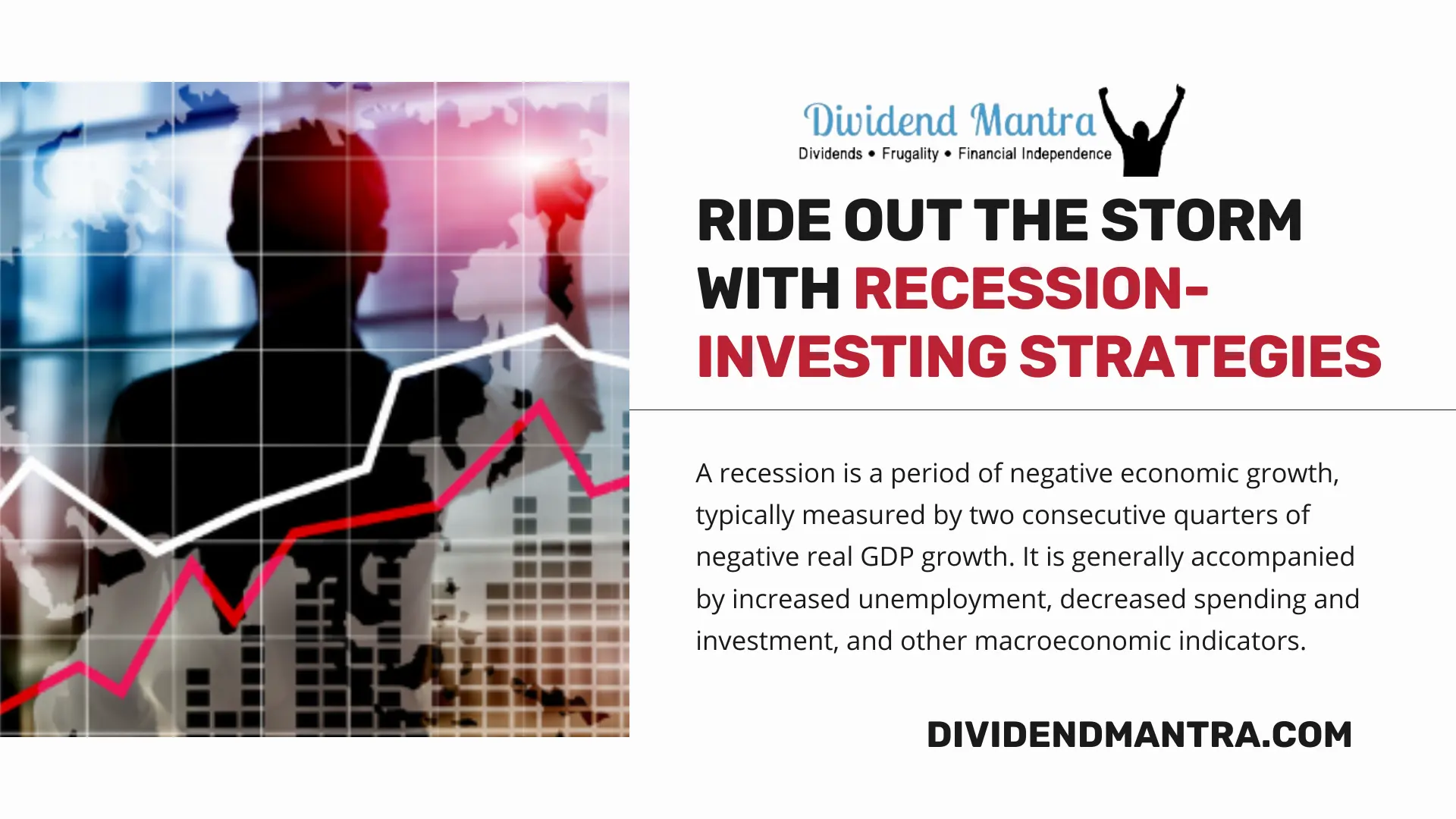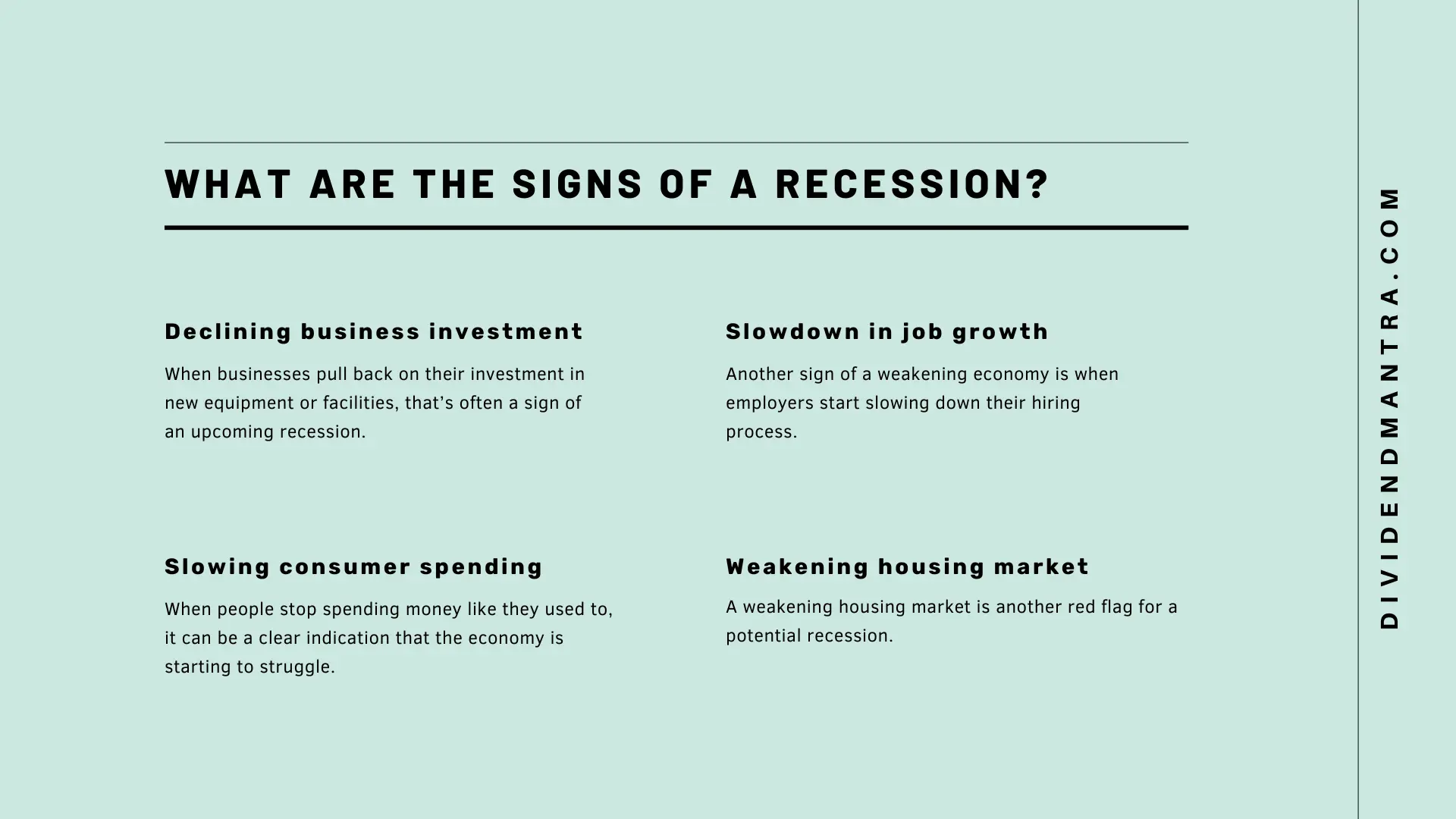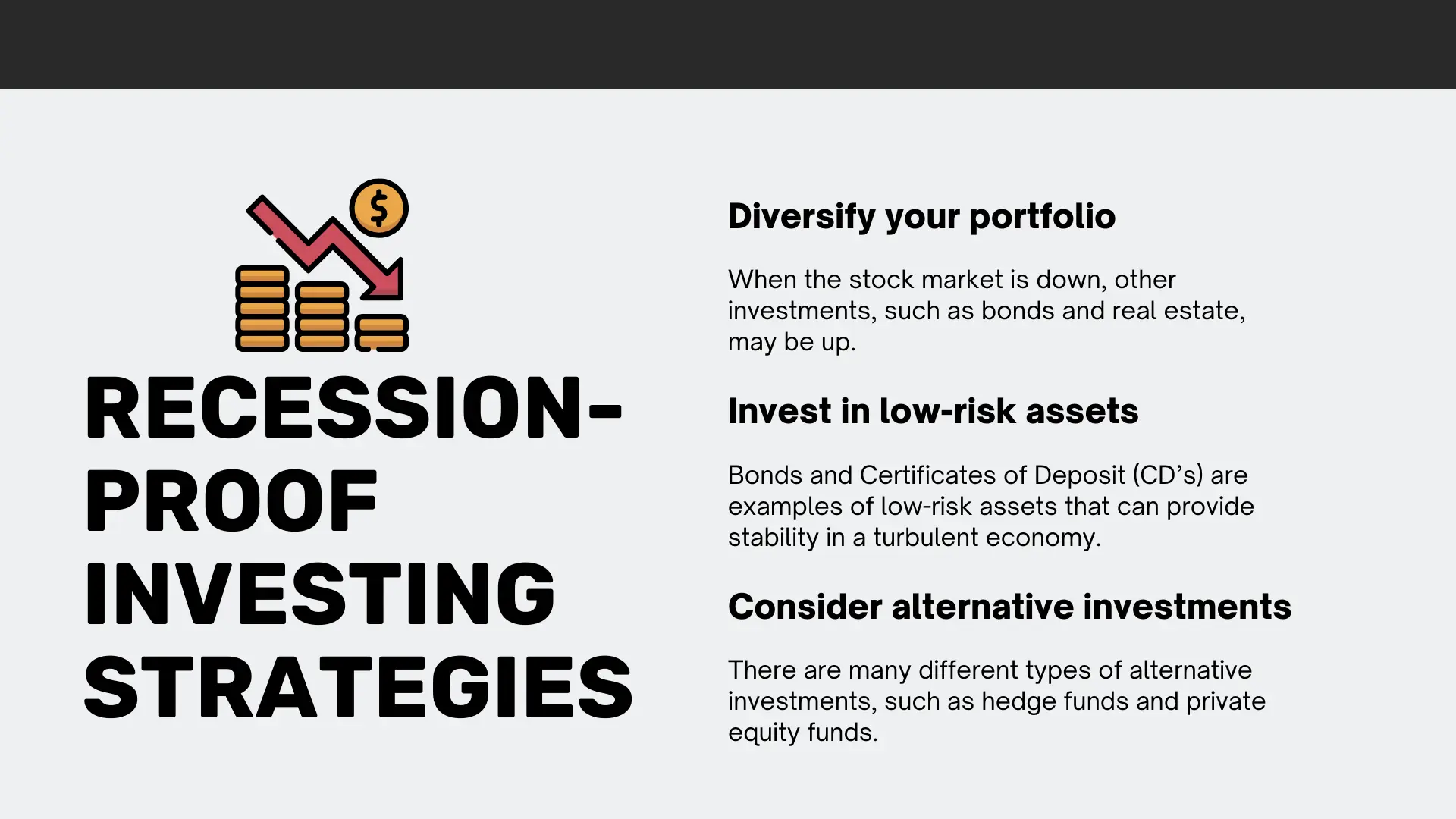Ride Out the Storm With Recession-Investing Strategies
A recession is a period of negative economic growth, typically measured by two consecutive quarters of negative real GDP growth. It is generally accompanied by increased unemployment, decreased spending and investment, and other macroeconomic indicators. There are a number of factors that can lead to a recession, including: declines in consumer spending, declines in business investment, increases in unemployment, decreases in exports, and increases in imports.
Recessions can be very harmful to the economy, as they can lead to increased unemployment, decreased spending and investment, and other macroeconomic indicators.
Naturally, when the economy takes a downturn, many people panic and sell off their assets in an effort to save themselves from a financial disaster. However, there are several recession-investing strategies that can help you weather the storm and protect your wealth. By implementing these strategies, you can minimize the damage done to your portfolio during tough economic times and improve your chances of weathering any future recessions.
What Are the Signs of a Recession?
No one knows for sure when the next recession will happen, but there are some telltale signs that can help you prepare. Here are four signs of a potential recession:
1. Declining business investment: When businesses pull back on their investment in new equipment or facilities, that’s often a sign of an upcoming recession.
2. Slowdown in job growth: Another sign of a weakening economy is when employers start slowing down their hiring process. If jobs aren’t being created as fast as they were before, that could be a sign of things to come.
3. Slowing consumer spending: When people stop spending money like they used to, it can be a clear indication that the economy is starting to struggle.
4. Weakening housing market: A weakening housing market is another red flag for a potential recession.
How Can You Recession-Proof Your Finances?
The key to recession-proofing your finances is to take action before the economy takes a turn for the worse. Here are four steps you can take to safeguard your money and prepare for potential financial hardship:
1. Review your expenses and make changes where necessary. Trim the fat by canceling unnecessary subscriptions, eating out less, and finding cheaper ways to get around town.
2. Build an emergency fund. Save up enough money to cover at least three months of living expenses in case you lose your job or experience another unexpected financial setback.
3. Invest in yourself. Take courses and learn new skills that could lead to higher-paying opportunities if the economy slows down.
4. Stay disciplined with your spending.
Recession-Proof Investing Strategies
There are a few recession-proof investing strategies that can help you maintain your wealth, even in tough times. Here are a few of them:
1. Diversify your portfolio: When the stock market is down, other investments, such as bonds and real estate, may be up. By diversifying your portfolio, you can minimize your losses if one investment crashes.
2. Invest in low-risk assets: Bonds and Certificates of Deposit (CD’s) are examples of low-risk assets that can provide stability in a turbulent economy. They may not offer high returns, but they will protect your principal investment.
3. Consider alternative investments: There are many different types of alternative investments, such as hedge funds and private equity funds. These investments can be more volatile than traditional assets, but they can also offer higher returns potential during economic downturns.
a. Investing in Bonds as a Recession-Investing Strategy
When most people think about investing, they think about buying stocks. But another option to consider in a down economy is buying bonds. Bonds are essentially loans that the government or a corporation makes to investors. In return for lending money, the bond issuer pays the investor interest on a regular basis, usually twice a year.
Bonds can be a good investment during a recession because they offer stability and security. Unlike stocks, the value of bonds doesn’t fluctuate as much with the ups and downs of the market. And unlike money in a savings account, bonds offer relatively high interest rates.
Of course, there is always some risk when investing in bonds, especially if the issuer defaults on its payments. But if you’re looking for a conservative investment option that will still provide some growth potential, bonds may be right for you.
b. Investing in Real Estate as a Recession-Investing Strategy
In any economy, there are always some sectors that perform better than others. During a recession, investing in real estate can be a sound strategy, as this sector is often less affected by economic downturns. Here are three reasons why investing in real estate during a recession can be a smart move:
1) Property values often decline less than stock prices during recessions, meaning that your investment is more likely to retain its value.
2) Rental income from property investments tends to stay stable or even increase during a recession, making this type of investment relatively low-risk.
3) The demand for rentals usually increases during a recession as more people are forced to downsize or relocate, providing opportunities for solid returns on investment.
c. Investing in Certificate of Deposit as a Recession-Investing Strategy
When you’re looking for a safe, low-risk investment option, a certificate of deposit (CD) can be a good choice. In fact, in times of economic recession, investing in CDs can be an especially wise strategy.
Here are three reasons why:
1. CD rates are typically higher than savings account rates.
2. The principal amount invested in a CD is insured by the Federal Deposit Insurance Corporation (FDIC) up to $250,000 per individual depositor.
3. A CD provides fixed rate of return, which means you know exactly how much interest you will earn on your investment.
d. Investing in Hedge Funds as a Recession-Investing Strategy
Hedge funds are designed to provide stability and protection in down markets. They do this by investing in a variety of assets, including stocks, bonds, and commodities. This diversification helps to minimize risk and maximize returns.
Another advantage of hedge funds is that they can be accessed by both accredited and non-accredited investors. This makes them an attractive option for those who want to spread their money around without having to invest in individual stocks or bonds.
Finally, hedge funds offer investors the opportunity to participate in alternative investment strategies.
e. Investing in Private Equity Funds as a Recession-Investing Strategy
When the economy is uncertain, some investors may look to private equity funds as a way to protect their portfolios. Private equity funds are often seen as a more conservative investment than stocks, and they can provide stability in a rocky market. In addition, private equity funds can offer higher returns than other types of investments. This may be due to the fact that private equity firms often invest in companies that are not publicly traded.
Private equity firms typically have a smaller pool of investors, which means that they can be more selective about the companies they invest in. This can lead to higher returns for investors. However, it is important to remember that private equity funds involve more risk than other types of investments mentioned above.
The Importance of Diversification
There is a reason that the old adage “don’t put all your eggs in one basket” exists – it’s smart advice. When it comes to investing, diversity is key. Putting all of your money into one or two stocks can be a risky move if the market takes a turn for the worse.
Instead, spread your money out into a variety of different investments. This will help to protect your portfolio if one investment falters. It will also allow you to take advantage of different opportunities as they arise.
In today’s economy, it’s especially important to diversify your portfolio. A recession can hit any time, so it’s best to be prepared. Diversifying your investments will help you to withstand tough times and emerge from the recession stronger than ever.
Stay the Course
If you already have stocks, one of the most important things is to stay calm and not panic. When the markets are volatile, it can be easy to get caught up in the hysteria and make bad decisions. Remember that over time, the stock market has always gone up. Yes, there will be downturns along the way, but historically speaking, investing in stocks is still one of the best ways to grow your money.
Conclusion
In conclusion, there are many recession-investing strategies that can help you ride out the storm. By following these tips, you can protect your portfolio and even make some money in difficult times. So don’t panic – these strategies will help you weather the storm.









